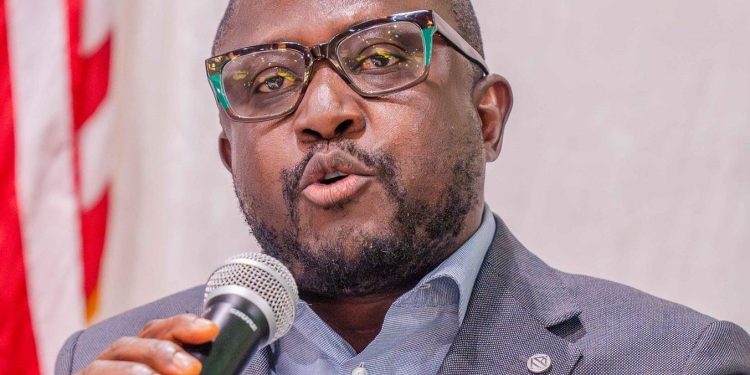By Hassan Osman Kargbo
The Judiciary of Sierra Leone, through the Judicial and Legal Training Institute (JLTI), has commenced a two-day training for thirty-eight magistrates from across the country on the newly enacted Criminal Procedure Act (CPA) of 2025. The initiative forms part of Chief Justice His Lordship Justice Komba Kamanda’s broader judicial reforms aimed at enhancing efficiency, professionalism, and access to justice.
Opening the session, Chief Justice Kamanda emphasized that the training was designed to keep magistrates abreast with the provisions of the new law and to equip them with the necessary tools for its effective application in court proceedings. He noted that the new Act represents a significant shift from the outdated 1965 legislation and aligns Sierra Leone’s justice system with modern international standards.
“The topics outlined in the agenda are rich and well thought out,” the Chief Justice stated. “When I carefully reviewed the list of facilitators, I realized they were carefully selected by the Judicial and Legal Training Institute to ensure the best quality of delivery.”
Justice Kamanda commended development partners, especially the United Nations Development Programme (UNDP) and the Justice Sector Coordination Office (JSCO), for their continuous support towards judicial reforms. He highlighted that such partnerships are vital to achieving lasting institutional change and ensuring the judiciary remains independent, efficient, and accountable.
Delivering goodwill remarks, Supreme Court Judge Honourable Justice Eku Robert praised the Chief Justice for what he described as “excellent leadership and visionary direction” at the Judiciary. He lauded Justice Kamanda’s commitment to building the capacity of judicial officers and staff through continuous professional development. “Thank you, my Lord Chief Justice, for promoting the capacity of Judges, Magistrates, and Judicial Staff through the Judicial and Legal Training Institute,” Justice Robert said. He also acknowledged the support of his colleague judges in sustaining the ongoing reforms.
Coordinator of the training, Honourable Justice Fatmatta Bintu Alhadi JSC, explained that the main objective of the training was to enhance professionalism within the Bench and to ensure magistrates fully understand and correctly apply the new CPA in their daily work. She underscored the importance of regular training in maintaining public confidence in the justice system and thanked UNDP and JSCO for their continued support in strengthening the judiciary’s institutional capacity.
Attorney General and Minister of Justice, Alpha Sesay Esq., highlighted that the new Criminal Procedure Act of 2025 introduces several innovations not present in the 1965 Act. He said the reform modernizes Sierra Leone’s justice system and brings it in line with international human rights standards to ensure fairness, transparency, and speedy judicial processes.
He explained that one of the major improvements under the new Act is the introduction of alternative sentencing measures such as community service, suspended sentences, and deferred sentences for offences with penalties not exceeding two years. These, he noted, will help decongest correctional centres and promote restorative justice.
Attorney General Sesay commended the Chief Justice for leading meaningful judicial reforms and thanked the Judicial and Legal Training Institute for its continued commitment to capacity building across the Bench.
The two-day training is expected to enhance the understanding and interpretation of the new Criminal Procedure Act among magistrates, promoting consistency in judgments and effective delivery of justice across Sierra Leone.













